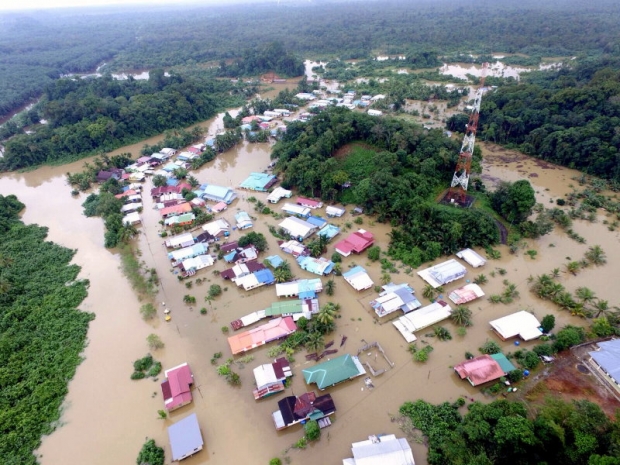
Source Aliran
KUCHING, Malaysia-I woke up this morning to a loud thunderstorm. “We won’t be going camping today, I guess,” I thought to myself.
I drew the curtains and peered outside – cars and motorcycles were detouring to avoid a flood.
I grabbed my phone and scrolled through social media to see lots of people posting about floods in Kuching. It was bad.
Cars, unable to move because of the floods, jammed many roads. One car was almost submerged at the third mile underpass.
Why are we still not solving the problem of floods in Sarawak?
The Sarawak state government recently ended the Asia Carbon Conference in hotel in Kuching on 16 March. It seemed to be a hot topic among companies and NGOs.
Why so? Among the matters discussed during the conference was the state government’s initiative to introduce carbon capture utilisation and storage in Sarawak as part of climate change adaptation and mitigation.
According to Sarawak Premier Abang Johari Openg, the carbon trading and carbon markets are crucial components of the global effort to reduce carbon emissions and combat climate change – in short, to reduce the amount of carbon dioxide released to the atmosphere.
As much as the state government is looking into investing machines and introducing new technologies in Sarawak as part of climate change adaptation and mitigation, I can’t help but wonder why it is not prioritising flood mitigation instead.
Since 2019 Sarawak has experienced a rising frequency of floods in different parts of its territory, especially in city centres like Kuching. The flood has damaged many homes and vehicles. Families have been forced to flee to higher ground.
Today, the flash flood hit many parts of Kuching like Uni Garden, the third mile roundabout, Rock Road, Taman Desa Wira and Padang Merdeka.
One distressing video forwarded to my Whatsapp group was of an animal shelter (SSPCA) that appeared to be almost entirely submerged. This had also happened in 2021. So why aren’t the authorities doing anything about it?
Flooding is not just about poor urban planning or poor drainage systems; it is also directly linked to climate change. Due to rising temperatures, more water evaporates to the atmosphere, resulting in changing rainfall patterns.
Because of these rising global temperatures, floods are the most frequent among all natural disasters globally (World Health Organization, 2023).
Unfortunately, due to geographical factors, Malaysia is one of the countries vulnerable to flooding.
Instead of investing in machines and technologies, the Sarawak state government should plan an effective method of tackling flood issues in Sarawak.
Climate change is a crucial problem the nation must address. However, looking into methods that might not guarantee the future of our country may bring more harm than good.








0 Comments
LEAVE A REPLY
Your email address will not be published